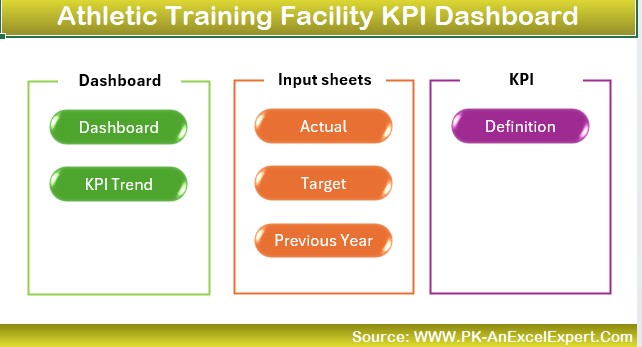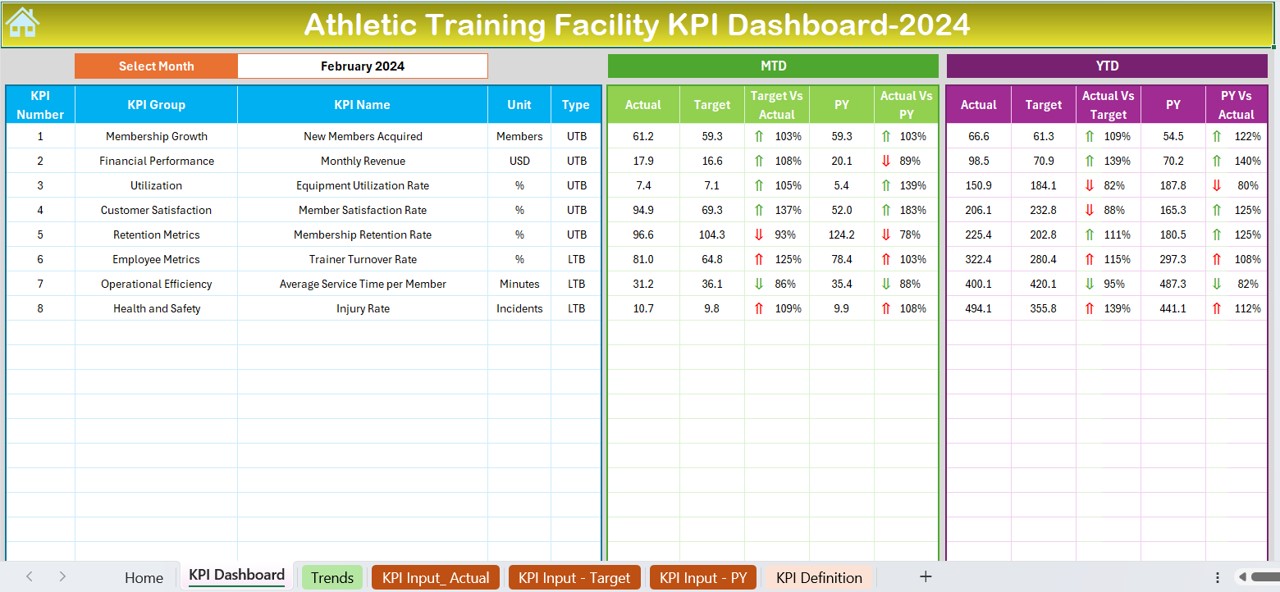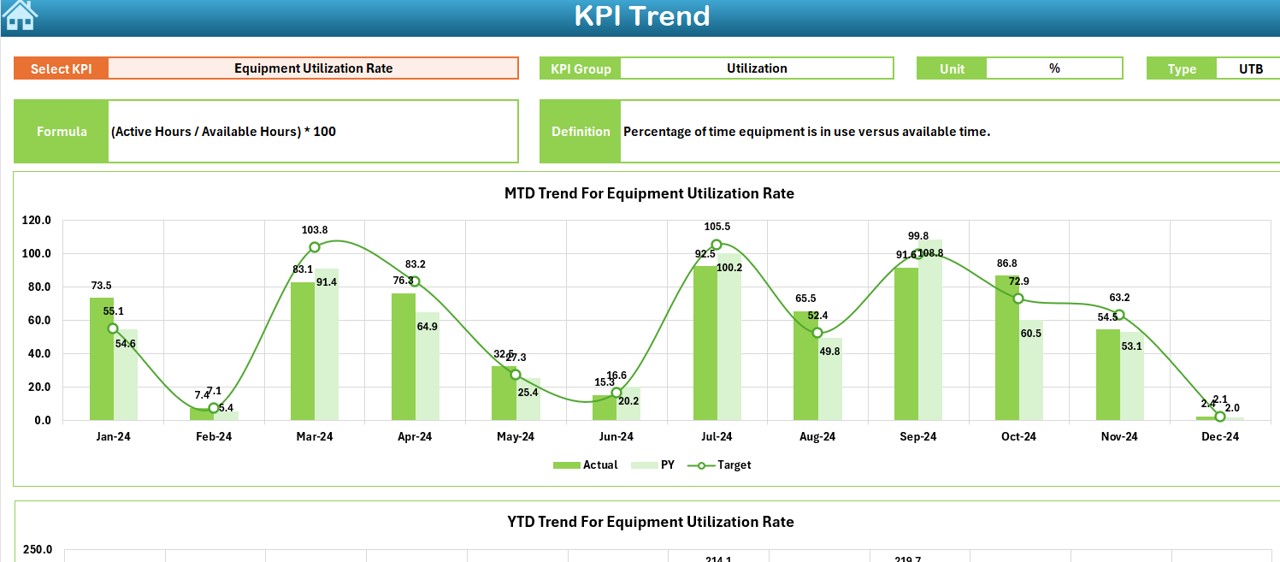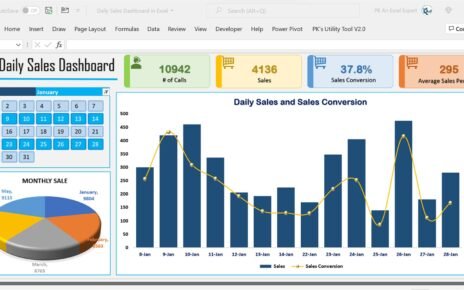In the highly competitive realm of sports, managing an athletic training facility goes beyond a sheer passion for athleticism—it demands a profound insight into performance metrics. This necessity introduces the Athletic Training Facility KPI Dashboard in Excel, a pivotal tool designed to help managers and trainers oversee the key performance indicators essential for their facility’s operational success and growth. This article offers a comprehensive guide on how to leverage this dashboard effectively to enhance your facility’s performance Athletic Training Facility KPI Dashboard.
Click to buy Athletic Training Facility KPI Dashboard in Excel
Understanding the Athletic Training Facility KPI Dashboard
What Exactly is a KPI Dashboard?
A KPI dashboard visually represents crucial metrics that help in achieving strategic objectives crucial for assessing current and future performance. For athletic training facilities, such a dashboard provides a crucial snapshot of operational success across varied metrics like financial performance, client satisfaction, and training outcomes, thus aiding in effective management.
Essential Features of the Athletic Training Facility KPI Dashboard
This dashboard is intuitively designed to be user-friendly and highly informative, consisting of various components tailored to specific monitoring needs:
Click to buy Athletic Training Facility KPI Dashboard in Excel
Home Sheet:

Serving as the command center of the dashboard, this sheet features navigation buttons that facilitate effortless transitions to different sheets, thus enhancing user interaction and efficiency.
Dashboard Sheet Tab:

This central tab presents comprehensive data for selected months. It includes MTD and YTD actuals against targets and previous year’s data, enriched with visual indicators through conditional formatting, making analysis straightforward and quick.
KPI Trend Sheet Tab:

Offering a detailed examination of individual KPIs, this tab shows trends and includes dropdowns for KPI selection. It outlines critical details such as the KPI’s group, unit, and the type—clarifying whether lower or higher figures are preferable.
Click to buy Athletic Training Facility KPI Dashboard in Excel
Actual Numbers Input Sheet:

Here, users can enter real-time performance data. The ability to switch between months adds a layer of adaptability, enhancing the dashboard’s utility for continual monitoring.
Target Sheet Tab:

This area is designed for setting performance targets, which encourages a goal-oriented approach among staff.
Click to buy Athletic Training Facility KPI Dashboard in Excel
Previous Year Number Sheet Tab:

Comparing current performance against the prior year, this tab highlights trends and pinpoints areas needing improvement or those showing decline.
KPI Definition Sheet Tab:

Vital for all users, this tab stores the definitions and formulas for each KPI, ensuring clarity and uniform understanding across the board.
Advantages of Utilizing an Athletic Training Facility KPI Dashboard
- Improved Decision-Making: The real-time visual data aids facility managers in making informed and timely decisions that enhance operational efficiency and effectiveness.
- Efficient Goal Tracking: The dashboard simplifies monitoring progress towards goals, delineating a clear path to achieving desired outcomes.
- Optimization of Performance: Analyzing trends and comparing targets with actuals allows trainers to refine their strategies for better athlete performance.
- Enhanced Accountability: The clear visibility of each KPI fosters a culture of accountability among the staff, pushing for high standards of performance facility-wide.
Click to buy Athletic Training Facility KPI Dashboard in Excel
Best Practices for Implementing Your KPI Dashboard
- Consistent Updates: Keep the data inputs frequently updated to ensure accuracy in tracking and analysis.
- Thorough Training: Equip all users with the necessary knowledge to navigate, input data, and interpret the dashboard effectively.
- Incorporate Feedback: Actively seek and incorporate user feedback to continuously enhance the dashboard’s functionality and user experience.
- Guard Data Integrity: Implement strict measures to ensure the accuracy and consistency of the data entered into the dashboard.
Frequently Asked Questions with Answers
Q. What is the most effective way to set targets on the KPI Dashboard?
Ideally, targets should be based on an analysis of historical data, adjusted to align with industry standards and realistic assessments of what can be achieved.
Q. How frequently should the dashboard be updated?
It’s best to update the dashboard monthly or whenever new data becomes available to keep all metrics up-to-date and relevant.
Q. Can the dashboard be customized for various athletic programs?
Absolutely, the dashboard offers extensive customization options to cater to specific sports or training programs by adjusting the KPI definitions and input parameters.
Q. Is training necessary for effective dashboard usage?
Yes, although the dashboard is designed for ease of use, initial training on how to use the features effectively is crucial for all users to fully benefit from its capabilities.
Click to buy Athletic Training Facility KPI Dashboard in Excel
Visit our YouTube channel to learn step-by-step video tutorials
View this post on Instagram
Click to buy Athletic Training Facility KPI Dashboard in Excel



